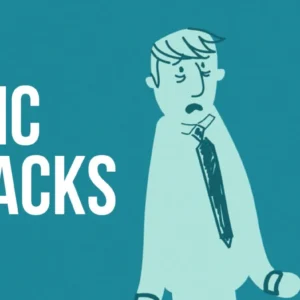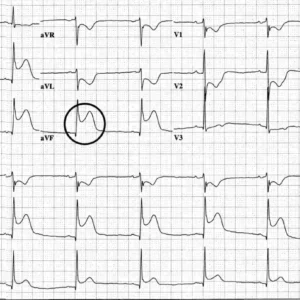Composing a heartfelt “letter to my alcoholic daughter” can undoubtedly be a challenging task. Conventionally, entering alcohol addiction treatment presents multiple complex emotional challenges, often leaving behind a web of tension-filled relationships.
Penning this pivotal letter may cause apprehension, with concerns that it may catalyze unpleasant disagreements. It could potentially culminate in passive-aggressive exchanges, feelings of indifference, bouts of frustration, pervasive sadness, or widening the chasm of the underlying conflict.
Letter to My Alcoholic Daughter
In most cases, before undertaking the major task of writing a “letter to my alcoholic daughter”, relationships have usually deteriorated, primarily due to hampered communication.
An intricate element leading to this is the natural inclination of those battling alcohol or drug addiction to pull away into their own isolation. Inside these self-created barriers, they focus solely on their addiction. Hence, crafting the right words may turn into a daunting task.
The essential step here is to engage in family counseling or personal therapy, especially if your journey involves supporting an addicted loved one. This therapeutic intervention serves as an outlet for releasing pent-up negative sentiments like bitterness, anger, unforgiveness, or indifferent attitudes, commonly felt towards the person in question.
Navigating Communication with Someone Battling Addiction
Addressing a loved one embroiled in the hardships of addiction often proves to be a daunting task. This is predominantly due to substance abuse’s transformative effect on their cognitive functions, leading to significant disruptions in interpersonal relations.
The majority struggle to recognize that drug or alcohol addiction is, in fact, a debilitating disease. Consequently, a person grappling between moderate to severe addiction can come across as exceptionally harsh to their friends and family. The repercussions of addiction, financial, physical, and emotive, weigh just as significantly on the individual as they do on their immediate social circle.
Viewing from the standpoint of a concerned relative or friend, you may be caught in a tempest of conflicting emotions. You might find yourself oscillating between anger, induced by your loved one’s compulsive drug-seeking behavior, and a wave of relief, comforted by their decision to pursue addiction treatment.
Most treatment centers adopt a policy of healthy demarcation between their residents and the outside world. Consequently, they often restrict access to smartphones, laptops, or the vast online realm. There are instances where geographical distance or stringent visitor regulations play a part in enhancing the individual’s focus on their therapeutic needs.
Under such circumstances, families must resort to composing a “letter to my alcoholic daughter”, portraying their understanding, supportive, and willing attitude towards fostering constructive communication with their loved daughter.
Drafting a Compassionate Letter to a Loved Daughter
When embarking upon writing this impactful “letter to my alcoholic daughter”, it is crucial to initiate the discourse with expressions of love. While you might despise the addiction and despise the consequential actions, this communication’s objective must clearly illustrate continued love and support for their decision to seek help.
The following thing to convey is forgiveness. Expressing forgiveness in a written message could serve as a motivational catalyst for your loved ones on their journey toward recovery. It assures them of your understanding that their past misdemeanors were addiction-induced, setting a foundation for repairing your relationship and enabling effective communication.
You must utilize the written medium to inspire and embolden their journey toward recovery. Indeed, upon entering the facility, they might be burdened with feelings of shame, helplessness, and defeat. Thus, it is prudent to opt for words that can illuminate their path and bolster their self-confidence.
A Letter to My Alcoholic Daughter: Cruise Through Article Sections
Experience the power of transforming lives through words. Aid is here for you and your loved ones if you’re grappling with addiction.
Pouring out your heart in a “letter to my alcoholic daughter” can wield profound influence. It’s a therapeutic approach for you, helping to channel complex emotions healthily and productively. To convey your care and worry effectively, it’s crucial to deliver your thoughts sincerely, lovingly, and without judgment. Otherwise, your efforts might inadvertently cause more harm than good. Here is a methodical guide to draft a heartfelt intervention letter etching the lines of profound love, concern, and good intentions.
Express Gratitude
Kicking off your “letter to my alcoholic daughter” with a thank you note can set a tone of understanding emotions, not confrontation. This step demonstrates the premium you place on their attention and your earnest desire to initiate quiet, thoughtful communication. Highlighting that you’re part of the same team is significant, especially because addicts often feel alienated and as if everyone is conspiring against them. Expressing unconditional support and appreciating them can create an atmosphere of openness and interest.
Provide an Insightful Anecdote
Here’s your chance to delve beyond the mere expression of the issue and narrate it vividly through a story. Tangible instances of the affected behavior will enable them to understand how others perceive their addiction issues.
Reveal Your Concern and Care
The ensuing paragraph should encapsulate how their actions are personally affecting your life. The revelation might evoke guilt in them if they care for you, in turn, making them realize the magnitude of their actions. It’s crucial to communicate explicitly regarding the issue at hand and the wealth of empathy you harbor for them. Assure them that you’re there, not to blame or berate them but only to encourage them to seek professional aid.
Enumerate the Advantages of Sobriety
Depict how embracing treatment can overhaul their lives positively. They can return to things they once found joy in, such as joining the soccer team or resuming college. Sketch them a vivid representation of their potential life, post-therapy.
Impose Necessitated Pressure
If you’re a parent or guardian penning down the “letter to my alcoholic daughter”, it might be effective to encourage quitting through measurable actions. This approach might involve withdrawing certain facilities like paying their cell phone bill or offering them a place to stay. These tough-love measures might be challenging to articulate, but bear in mind that they serve a higher purpose – your child’s sobriety.
A Heartfelt Message: Letter to My Alcoholic Daughter

Beloved Daughter,
My heart fills with gratitude every time I think of your presence in my life. You encompass beauty, intelligence, creativity, kindness, and compassion, and I treasure you with every ounce of my love.
However, subject to relentless anguish, I am now cognizant of the impacts of your addiction to both alcohol and drugs, on me. This insidious illness has been the unfortunate guiding force of our journeys for a multitude of years, with the perpetual dread of losing you shrouding all my days and nights.
Overburdened by guilt, I’ve found myself entrapped in the notion that your anguish lies at my doorstep, leading to feelings of having failed as a parent. I’ve wrestled with anger, realizing my trust has been exploited, enveloped by feelings of exploitation and powerlessness as I grappled with your lies, aggressive demeanor, defiance, and disregard for my expressed needs.
Recognizing my role in compounding the problem has led to remorse, accompanied by the enlightening realization surrounding the multitude of choices that lie before me. I find myself learning to be more mindful, to respond rather than instinctively react from a place of fear or worry. By achieving self-compassion and extending the same towards others, I discovered it’s a part of my journey to mind my own business, enabling others to take responsibility for their actions. I strive for progress, understanding the quest for perfection is futile.
Fostering love for myself enables me to extend the same towards you, enough to release you from my protective grasp. This act of “letting go” is not me abandoning you; rather, it’s an acceptance of the present circumstances. It’s about learning to manage my own pains, and not assuming the role of alleviator for everyone else’s suffering, whilst trusting you to navigate your own path.
Infinite love,
Mom
Concluding Thoughts on Letter to My Alcoholic Daughter
Active addiction is a known catalyst for ineffective communication within relationships. The individual’s inclination towards self-isolation, often driven by substance abuse, adds to the challenge.
Drafting a “letter to my alcoholic daughter” is a potentially transformative tool to aid their healing process. The deliberate choice of words enhances the communication’s quality, a facet often lacking in impromptu phone calls, that can rapidly degenerate into a disagreement. Moreover, a well-crafted letter can serve as a revisitable testament to your love and support for them.
While penning such a letter, it is advised to deploy encouraging words. A letter scented with supportive undertones, encapsulating your affection towards them, can be an extraordinarily effective tool. You could highlight the benefits of persisting with their treatment and the prospects of recovery. A little nudge in the form of showering them with love and respect can go a long way in enhancing their self-esteem.
Read more: Daily reflections of alcoholics anonymous













